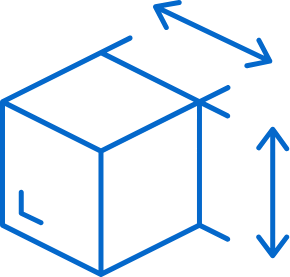Soil Compaction Test
Determine how much a soil has been compacted, which is important for engineering and construction: Purpose Compaction tests measure how much a soil has been compacted to increase density and reduce voids. This process improves the soil’s ability to support loads, reduces settlement, and makes it more resistant to water. Importance Compacted soil creates a […]
Field Electrical Resistivity Test
Our company performs Soil Resistivity Testing for clients who need to determine soil conductivity to design efficient electrode grounding systems in solar projects. To accurately calculate soil resistivity, LYNX SURVEYORS AND ENGINEERING employs the Wenner four-pin method according to ASTM G57. Our technicians perform the Wenner test by lining up four equidistant electrodes in the […]
Test Pits
Valuable tool as an option to soil test borings. Excavation characteristics of the soil can be evaluated, excavation sidewalls will expose soil stratification boundaries, perched seasonal ground water can be observed and representative bulk soil samples for laboratory testing can be collected from the excavation spoils.
Soil Infiltration Testing
A soil infiltration test is a type of field test conducted to determine the infiltration rate of a particular area’s soils and to explore the subsurface conditions underneath the soil. The “infiltration rate” refers to the speed at which water enters into the soil. Soil infiltration testing is typically conducted early in the planning and […]
Pressuremeter Testing
Pressuremeters are devices for carrying out insitu testing of soils and rocks, primarily for strength and stiffness parameters. They are generally cylindrical, long with respect to their diameter, with the central part of instrument being covered by a flexible expanding membrane. Pressuremeter testing is becoming increasingly recognized as one of the key tools available to […]
Pile Driving
In suitable locations, driven piles are more cost and time-efficient than are concrete and helical pile designs. We have a special equipment and unique engineering solutions to minimize the risks of rejected piles during installation.
Pile Load Testing
Process of evaluating the performance and characteristics of piles. Three types of load tests have become common: lateral, axial tensile, and axial compressive. These tests help to minimize material costs and ensure structural performance for the thousands of piles supporting a solar project.
Evaluations, Analysis and Inspections
It includes the evaluation of soil quality, the identification of possible geotechnical hazards and the determination of soil resistance and stability. This analysis provides important information for structure design and material selection.
Foundation, Earthwork and Settlement
The loads transmitted by the foundation to the ground give rise to its deformation and this translates into settlements, horizontal displacements, and rotations of the structure that, if excessive, may cause fissures, cracks, or other pathologies. Settlement or settlement is therefore understood as the vertical downward movement of the ground, due to the application of […]
Geotechnical Drilling Services
For any large design and construction projects, we offers geotechnical drilling services with talented and licensed drillers, a diverse equipment fleet of truck and track mounted rigs, and decades of project management experience in all types of geological conditions.
Slope Stability and Embankment Analysis
It is one of the parameters in the design of highway embankments that the designer must consider so that they are built in a stable and safe manner. It allows the recognition and classification of the various types of mass movements that can occur, their morphological characteristics, geological environment, speed and causes of failure.
Site Preparation and Foundation Specification Development
Specifies the elements of a structure, whose objective is to transmit and distribute the load it supports to a piece of land so that it does not exceed the weight it supports.
Geological Hazard Assessment
Crucial process that helps us understand and evaluate the potential hazards posed by the Earth’s dynamic processes. By analyzing geological factors such as earthquakes, volcanic eruptions, landslides and tsunamis, we can identify areas of vulnerability and develop strategies to mitigate associated risks.
Site Characterizations Studies
It is an alternative to evaluate the natural and anthropic factors that influence the instability of the terrain and the consequences that these phenomena entail. Also, It seeks to identify the main behavioral characteristics of each of the subsoil materials, with the aim of understanding them and thus being able to draw up guides on […]
Seismic Site Class Determination
The American Society of Civil Engineers (ASCE) 7-16 requires site classification for seismic design based on the upper 100 feet of a soil profile. Considering the soil profile encountered on site and previous experience within the upper 100-foot of soil, we can recommend a seismic site classification for the Site based on the seismic considerations […]
Preliminary and final explorations
Set of activities necessary to approach the geotechnical characteristics of a land, to establish the conditions that limit its use, the potential problems that may arise, the geotechnical criteria and general parameters for the development of a project. In the final exploration, the geotechnical engineer must specify everything related to the physical-mechanical conditions of the […]















